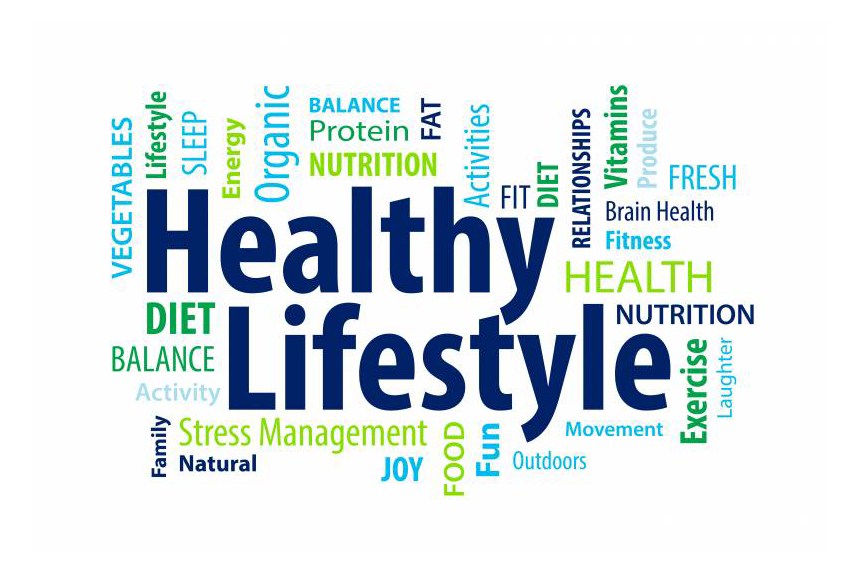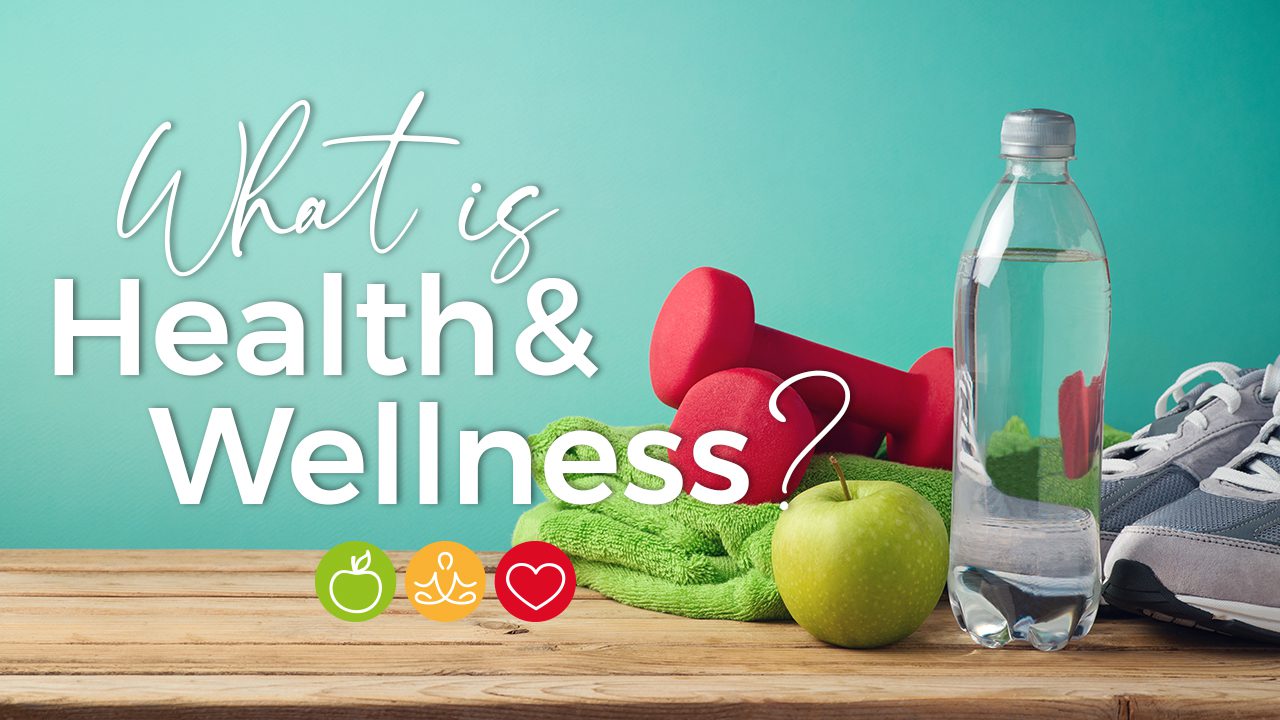Starting on a journey toward better health can feel both exciting and overwhelming. If you’re new to making changes that improve your health, the abundance of information might make you wonder where to start or what advice to follow. The best healthy lifestyle advice for beginners focuses on creating small, consistent habits that build a strong foundation for lasting well-being.
Healthy lifestyle advice is more than just rules about what to eat or how much to exercise. It is a comprehensive approach that nurtures the body, mind, and emotions. Beginners should focus on sustainable habits rather than quick fixes or extreme regimens. By incorporating balanced nutrition, regular physical activity, proper rest, stress management, and hydration, anyone can create a healthier lifestyle that fits their personal needs.
In this article, we explore the best healthy lifestyle advice for beginners in a clear, practical way. Whether you want to increase energy, manage weight, improve mental clarity, or simply feel better every day, this guide offers reliable tips, answers common questions, and highlights key takeaways to get you started.
Key Takeaways
- Healthy lifestyle advice focuses on sustainable, balanced habits rather than quick fixes.
- Nutrition, exercise, sleep, hydration, and stress management form the core pillars.
- Start with small changes like walking more, drinking water, and improving sleep hygiene.
- Overcome challenges by setting realistic goals and seeking social support.
- Healthy lifestyle advice benefits both physical and mental health.
- Patience and consistency are essential for long-term success.
Understanding Healthy Lifestyle Advice
Healthy lifestyle advice often seems complex because it covers many areas — diet, exercise, sleep, mental health, and habits like smoking or alcohol consumption. However, the core idea is simple: make choices that support your body and mind consistently over time.
For beginners, the best healthy lifestyle advice emphasizes balance. It encourages eating a variety of nutrient-dense foods instead of following strict diets, moving your body regularly without overdoing it, and resting enough to allow recovery and growth. Mental health practices like mindfulness and stress reduction are equally important to maintain motivation and overall happiness.
This advice is rooted in scientific research and expert consensus but is tailored for real-life application. It respects individual differences and encourages gradual changes instead of overnight transformations.
What Does Healthy Lifestyle Advice Encompass?
Healthy lifestyle advice broadly covers several interconnected areas that affect overall health:
Balanced and Nutritious Eating Habits
At the core of healthy lifestyle advice is nutrition. What and how you eat profoundly affects your energy levels, immune system, body weight, and even mood. Healthy eating means:
- Eating a Variety of Foods: Consuming different food groups ensures you get a broad spectrum of essential nutrients. This includes fruits, vegetables, whole grains, lean proteins, and healthy fats.
- Portion Control: Paying attention to serving sizes helps avoid overeating, which is a common barrier to maintaining a healthy weight.
- Choosing Whole, Minimally Processed Foods: Whole foods retain more nutrients and fewer additives compared to highly processed snacks or fast food.
- Limiting Added Sugars and Salt: Excessive sugar and salt intake can increase the risk of chronic diseases like diabetes and hypertension.
- Hydrating Properly: Water intake supports digestion, circulation, and temperature regulation.
Healthy lifestyle advice stresses the importance of mindful eating — listening to your hunger and fullness cues — rather than restrictive dieting or eliminating entire food groups unnecessarily.
Regular Physical Activity and Movement
Exercise is vital for maintaining muscle mass, cardiovascular health, bone density, and metabolic function. The best healthy lifestyle advice encourages:
- Incorporating Different Types of Exercise: A mix of aerobic (walking, running, swimming), strength training (weights, resistance bands), flexibility (yoga, stretching), and balance exercises.
- Consistency Over Intensity: Regular, moderate activity is more sustainable and beneficial than occasional intense workouts that may lead to injury or burnout.
- Moving Throughout the Day: Reducing sedentary behavior by standing, walking, or stretching frequently — even outside of formal workouts.
- Finding Enjoyable Activities: Exercise should feel rewarding and fit your lifestyle to improve adherence.
Physical activity also releases endorphins, boosting mood and reducing symptoms of anxiety and depression, making it a key piece of healthy lifestyle advice.
Quality Sleep and Rest

Sleep is foundational yet often overlooked in discussions about health. Healthy lifestyle advice highlights that:
- Adults Typically Need 7-9 Hours per Night: Sleep duration can vary, but getting enough quality rest is crucial.
- Sleep Hygiene Matters: Creating a calming bedtime routine, limiting caffeine and screens before bed, and keeping a consistent sleep schedule help improve sleep quality.
- Rest is as Important as Activity: Rest and recovery periods allow the body to repair muscles, consolidate memories, and regulate hormones.
Neglecting sleep negatively affects appetite, mood, and immune function, undermining other healthy habits.
Effective Stress Management
Chronic stress contributes to inflammation, weakened immunity, and mental health challenges. Healthy lifestyle advice encompasses learning techniques to reduce and manage stress, such as:
- Mindfulness and Meditation: Practices that cultivate present-moment awareness and relaxation.
- Physical Activities: Exercise itself helps manage stress by releasing tension.
- Social Support: Maintaining strong relationships and seeking help when needed.
- Hobbies and Leisure Activities: Engaging in enjoyable activities provides mental breaks and rejuvenation.
- Time Management: Prioritizing tasks and setting boundaries to avoid overwhelm.
Developing healthy coping mechanisms is vital for maintaining emotional balance and preventing burnout.
Adequate Hydration
Water is critical for every bodily function:
- Supports Metabolism and Digestion: Water helps break down food and transport nutrients.
- Regulates Body Temperature: Through sweating and respiration.
- Maintains Joint Lubrication and Skin Health: Hydration affects physical comfort and appearance.
Healthy lifestyle advice recommends drinking enough water daily, typically around eight 8-ounce glasses, though needs vary depending on activity level, climate, and individual factors.
Avoidance or Minimization of Harmful Habits
Healthy lifestyle advice also involves steering clear of behaviors that jeopardize health, including:
- Smoking: Tobacco use is linked to cancer, respiratory diseases, and cardiovascular problems.
- Excessive Alcohol Consumption: Drinking in moderation, if at all, is recommended to reduce risks of liver disease, addiction, and accidents.
- Excess Junk Food and Processed Snacks: These are often high in unhealthy fats, sugars, and salt.
Replacing harmful habits with healthier alternatives is a critical part of adopting a sustainable healthy lifestyle.
Regular Health Screenings and Preventive Care
Another important aspect sometimes overlooked in healthy lifestyle advice is the role of preventive health measures such as:
- Routine Medical Checkups: To detect and manage conditions early.
- Vaccinations: Protect against infectious diseases.
- Dental Care: Oral health impacts overall health.
- Monitoring Mental Health: Recognizing signs of anxiety, depression, or other issues early.
Being proactive about health reduces long-term risks and supports well-being.
Social and Emotional Well-being

Healthy lifestyle advice extends beyond physical health to encompass social connections and emotional support. Human beings thrive on meaningful relationships, which:
- Provide Emotional Support: Helping manage stress and improve resilience.
- Encourage Healthy Habits: Friends and family can motivate positive behaviors.
- Reduce Feelings of Loneliness: Which is linked to poorer health outcomes.
Engaging in community, cultivating friendships, and expressing emotions openly are all part of a healthy lifestyle.
Why Is Healthy Lifestyle Advice Important?
The advice is based on decades of scientific research linking lifestyle habits to disease prevention and longevity. Adopting these habits can:
- Reduce the risk of chronic diseases like heart disease, diabetes, and certain cancers
- Improve energy levels and mental clarity
- Enhance mood and reduce anxiety or depression symptoms
- Support healthy weight management
- Boost immune function and recovery from illness or injury
The goal is to help individuals feel their best physically and mentally throughout their lives.
The Holistic Nature of Healthy Lifestyle Advice
One of the most important things beginners must understand is that healthy lifestyle advice is holistic. It means that no single habit works in isolation. For example, eating nutritious meals is critical, but without enough sleep or exercise, the benefits are limited. Similarly, managing stress enhances digestion and sleep quality.
This interconnectedness means that adopting a healthy lifestyle is a balanced integration of multiple habits that support each other.
The Role of Mindset in Healthy Lifestyle Advice
Equally crucial to the physical habits is the mindset one adopts. Healthy lifestyle advice encourages:
- Patience: Real change takes time; setbacks are normal.
- Consistency: Small habits repeated daily produce big results.
- Self-Compassion: Being kind to yourself motivates longer commitment.
- Flexibility: Adjusting goals and methods to fit your unique lifestyle helps avoid burnout.
A growth mindset, where challenges are seen as opportunities to learn, empowers beginners to stick with their health journey.
How to Choose Reliable Healthy Lifestyle Advice
The internet is filled with conflicting information, fad diets, and “miracle” solutions. For beginners, it’s essential to:
- Seek advice from trusted sources such as healthcare professionals, registered dietitians, and reputable health organizations.
- Focus on evidence-based recommendations supported by scientific research.
- Avoid extremes or overly restrictive plans that promise quick results but are hard to maintain.
- Consider personalized advice that respects your individual health status, preferences, and goals.
Healthy Lifestyle Advice Is About Balance, Not Perfection
Beginners often feel pressure to do everything “right” immediately. But the best healthy lifestyle advice teaches that:
- Balance is more important than perfection.
- Occasional indulgences or rest days don’t undo progress.
- Sustainable habits that fit your lifestyle lead to long-term success.
This approach reduces guilt and promotes a positive relationship with food, exercise, and self-care.
Common Myths About Healthy Lifestyle Advice
Understanding the facts helps beginners avoid common pitfalls:
- Myth: You must eliminate all carbs or fats to be healthy.
Fact: Both are essential when chosen wisely and balanced with proteins and micronutrients. - Myth: Exercising daily at high intensity is necessary.
Fact: Moderate, consistent activity is effective and safer, especially for beginners. - Myth: Healthy lifestyle advice is only about physical health.
Fact: Mental and emotional well-being are integral parts. - Myth: Supplements can replace a healthy diet.
Fact: Whole foods provide complex nutrition that supplements can’t match.
The First Steps in Applying Healthy Lifestyle Advice
Understanding the theory behind healthy lifestyle advice is empowering, but practical application is where transformation happens. Beginners should start by:
- Assessing current habits honestly without judgment.
- Setting small, achievable goals aligned with healthy lifestyle advice.
- Building one habit at a time to avoid overwhelm.
- Tracking progress and adjusting as needed.
- Seeking support from professionals or communities for accountability.
Essential Healthy Lifestyle Advice for Beginners
| Category | Healthy Lifestyle Advice | Explanation / Tips for Beginners |
|---|---|---|
| Balanced Nutrition | Eat a variety of whole, nutrient-rich foods | Focus on fruits, vegetables, whole grains, lean proteins, and healthy fats. Avoid processed foods and sugary drinks. |
| Practice mindful eating | Listen to hunger and fullness cues; avoid eating out of boredom or stress. | |
| Physical Activity | Aim for at least 150 minutes of moderate exercise weekly | Start with walking, stretching, or light activities you enjoy. Gradually increase intensity. |
| Include strength and flexibility exercises | Use body weight, resistance bands, or yoga to build muscle and improve mobility. | |
| Sleep Hygiene | Get 7-9 hours of quality sleep per night | Set a consistent bedtime, limit screen time before bed, and create a calm sleeping environment. |
Focus on Balanced Nutrition
One of the fundamental pieces of healthy lifestyle advice is adopting a balanced, varied diet. Instead of cutting out entire food groups or counting every calorie, beginners should aim to:
- Include plenty of fruits and vegetables, which provide vital vitamins, minerals, and fiber.
- Choose whole grains like brown rice, oats, and whole wheat for sustained energy.
- Opt for lean protein sources such as poultry, fish, legumes, and plant-based proteins.
- Incorporate healthy fats from nuts, seeds, avocados, and olive oil.
- Limit intake of processed foods, sugary drinks, and excessive salt.
Learning to listen to your body’s hunger and fullness signals through mindful eating is also an important aspect of this healthy lifestyle advice.
Incorporate Regular Physical Activity
Exercise doesn’t have to mean intense workouts at the gym. Beginners can start with simple activities such as:
- Walking for 20-30 minutes daily
- Stretching or yoga sessions
- Light strength training using body weight or resistance bands
- Swimming or cycling at a comfortable pace
The goal is to find enjoyable movement that fits your schedule and gradually build endurance, strength, and flexibility. Consistency is key, and this healthy lifestyle advice encourages aiming for at least 150 minutes of moderate activity weekly.
Prioritize Quality Sleep
Good sleep is often overlooked but is essential to a healthy lifestyle. It allows the body to repair, supports memory and learning, and helps regulate mood and appetite. Beginners should strive for 7-9 hours of quality sleep nightly by:
- Establishing a regular sleep schedule
- Creating a calming bedtime routine
- Limiting screen time before bed
- Ensuring a comfortable sleep environment
By improving sleep hygiene, you enhance your ability to follow other aspects of healthy lifestyle advice effectively.
Manage Stress Effectively
Stress can negatively impact physical and mental health if left unmanaged. Incorporating stress reduction techniques into your daily routine is vital healthy lifestyle advice. Beginners might explore:
- Mindfulness meditation
- Deep breathing exercises
- Journaling or creative hobbies
- Spending time outdoors or in nature
- Social connection and talking to supportive friends or family
Recognizing stress triggers and building resilience helps maintain balance and prevents burnout.
Stay Hydrated
Water is essential for every function in the body, from digestion to temperature regulation. Healthy lifestyle advice emphasizes drinking enough fluids throughout the day, generally aiming for about eight 8-ounce glasses, though needs vary by individual. Carrying a water bottle, eating water-rich foods, and avoiding excessive sugary or caffeinated beverages support hydration.
Avoid Harmful Habits
For beginners, one of the most important healthy lifestyle advice points is to minimize or avoid habits that harm health, such as smoking and excessive alcohol consumption. These behaviors can undo the benefits of positive lifestyle changes and increase the risk of chronic diseases.
Practical Tips to Get Started with Healthy Lifestyle Advice
Making lasting changes starts with small, manageable steps. Here are some practical ways beginners can apply healthy lifestyle advice today:
- Start your day with a nutritious breakfast that includes protein and fiber.
- Replace sugary snacks with fruit or nuts.
- Use stairs instead of elevators whenever possible.
- Plan and prep meals ahead to avoid unhealthy last-minute choices.
- Set reminders to drink water throughout the day.
- Schedule regular physical activity like walks during breaks.
- Practice a 5-minute breathing exercise when feeling stressed.
- Keep a sleep journal to track habits and improvements.
Common Challenges and How to Overcome Them
Even with the best healthy lifestyle advice, beginners often face challenges such as lack of time, motivation, or knowledge. Here are ways to overcome these obstacles:
- Time Constraints: Break activities into shorter sessions. Ten minutes of walking or stretching several times a day is beneficial.
- Motivation Dips: Set realistic goals, celebrate small wins, and find a workout buddy or community for support.
- Conflicting Information: Rely on trusted sources like registered dietitians, doctors, or credible health organizations.
- Social Pressure: Communicate your goals to friends and family, and seek environments that support your healthy choices.
Also Read: How Can You Improve Your Health and Wellness Naturally?
Conclusion
The best healthy lifestyle advice for beginners is to start simple, focus on balance, and prioritize sustainability. By embracing balanced nutrition, regular movement, quality sleep, stress management, and hydration, anyone can build a foundation for lasting health. Remember, healthy lifestyle advice is not about perfection but progress. Small, consistent changes add up over time and create meaningful improvements in well-being.
Staying patient and kind to yourself during this process is crucial. As you learn what works best for your body and mind, healthy habits will become second nature. This lifelong approach ensures not only physical health but also improved mental clarity, emotional resilience, and overall happiness.
FAQs
What is the easiest healthy lifestyle advice for beginners?
Starting with drinking more water and walking regularly are simple but powerful first steps.
How soon will I see results from following healthy lifestyle advice?
Improvements in energy and mood often appear within weeks, but physical changes may take longer.
Can healthy lifestyle advice help with mental health?
Absolutely. Exercise, nutrition, sleep, and stress management all contribute positively to mental well-being.
Do I need to give up all my favorite foods to be healthy?
No. Healthy lifestyle advice promotes moderation and balance, allowing occasional treats without guilt.
How important is sleep compared to diet and exercise?
Sleep is equally crucial as it supports recovery and overall health. Neglecting sleep can hinder progress.
Can I start exercising if I have no experience?
Yes. Begin with gentle movements and gradually increase intensity. Consult a healthcare provider if you have health concerns.
Is it necessary to track everything I eat and do?
Not necessarily. Mindful awareness and intuitive habits can be more sustainable for many people.



